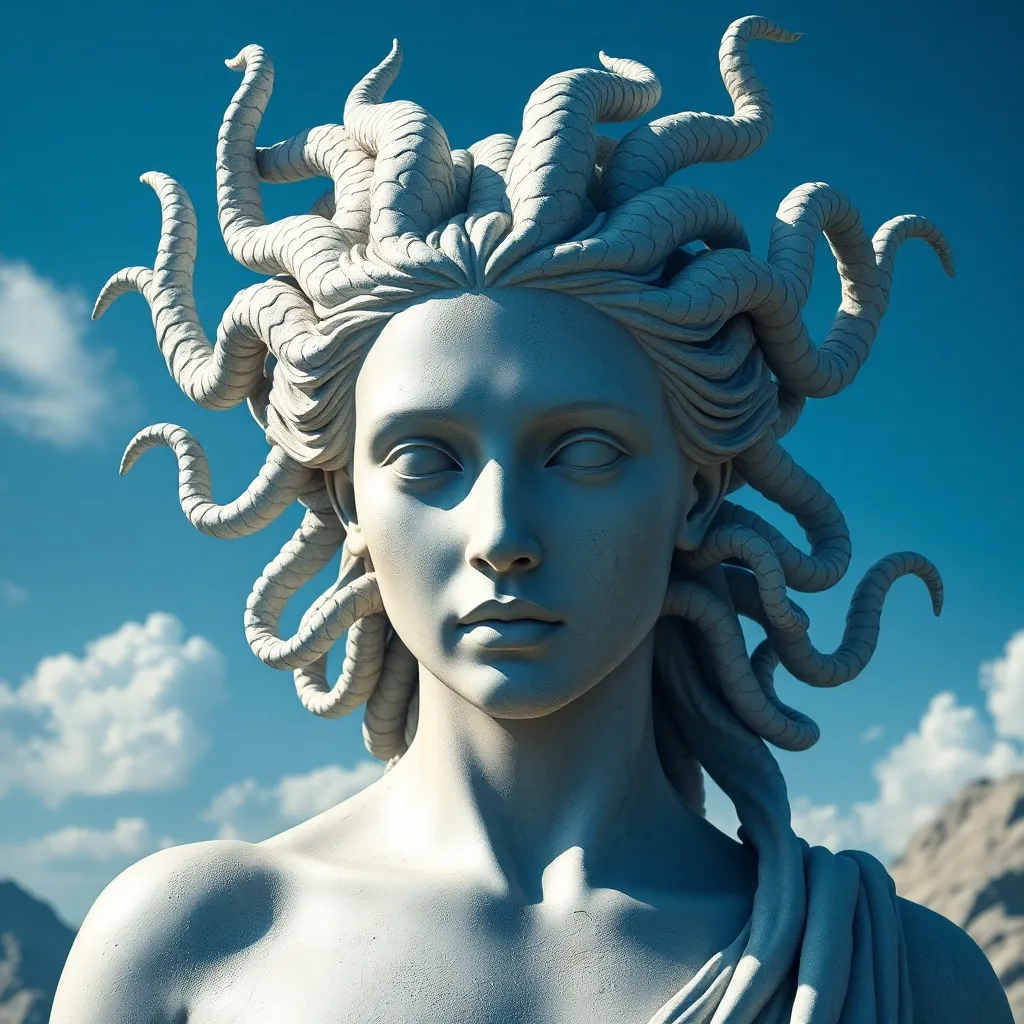Medusa and the Power of Myth: Why Her Story Endures
I. Introduction
Medusa, one of the most recognizable figures in Greek mythology, stands as a complex symbol of beauty, terror, and transformation. As a Gorgon, she wields the power to turn those who gaze upon her into stone, yet her story transcends mere horror narratives. Myths, like Medusa’s, serve as cultural touchstones, shaping societal values and beliefs across generations. This article explores the enduring relevance of Medusa’s tale, examining the themes, symbolism, and cultural impact that continue to resonate in today’s society.
II. The Origins of Medusa in Greek Mythology
The story of Medusa is steeped in rich historical context. Originally a beautiful maiden, she was one of the three Gorgon sisters. Her transformation into a monster is attributed to a series of divine punishments. According to myth, Medusa was cursed by Athena after being violated by Poseidon in one of Athena’s temples. This act of punishment highlights the interplay of power among the gods and the often tragic fate of women in Greek mythology.
The implications of Medusa’s transformation are profound. Once celebrated for her beauty, she becomes a figure of fear. The myth illustrates how societal perceptions can shift dramatically, especially in the face of divine retribution. Medusa’s story serves as a cautionary tale about the consequences of beauty and the tragic fate that can befall women who attract the attention of powerful men.
III. Symbolism and Themes in Medusa’s Story
Medusa embodies several powerful symbols and themes that resonate deeply within feminist and psychological frameworks. Firstly, she is often seen as a symbol of female rage and empowerment. Her ability to petrify those who look at her can be interpreted as a means of defense against male aggression.
- Beauty and Monstrosity: Medusa represents the duality of beauty and monstrosity. Her transformation into a Gorgon reflects society’s often contradictory views of women.
- Victimization and Agency: Medusa’s narrative explores themes of victimization, highlighting how women can be punished for the actions of others. Yet, her monstrous form grants her a new sense of agency.
- Transformation: The metamorphosis from maiden to monster serves as a metaphor for the changes women undergo in response to societal pressures and trauma.
IV. Medusa in Art and Literature
Medusa’s image has been a powerful muse throughout history, inspiring countless artists and writers. In ancient art, she was often depicted as a fearsome creature, her snake hair and piercing gaze designed to evoke terror.
Over the centuries, her portrayal has evolved:
- In the Renaissance, artists like Caravaggio portrayed her with a more humanistic touch, emphasizing her tragic beauty.
- In modern literature, authors have reimagined Medusa as a complex character with depth and agency, moving away from her initial depiction as merely a monster.
Contemporary art continues to reinterpret Medusa, often focusing on her as a symbol of female strength and resilience rather than fear. This shift highlights the ongoing relevance of her story in modern narratives.
V. Medusa as a Feminist Icon
In recent times, Medusa has emerged as a potent feminist icon. Her narrative has been reclaimed within feminist discourse, representing the struggle against patriarchal oppression. Various adaptations emphasize her as a figure of empowerment, rather than victimhood.
- Reclaiming the Narrative: Many modern feminists view Medusa as a symbol of resistance against male aggression and objectification.
- Influence on Gender Discussions: Medusa’s story has influenced discussions surrounding gender dynamics, power, and the societal treatment of women.
Case studies of modern adaptations, such as novels, films, and artworks, showcase her as a figure of strength, illustrating how her story can inspire discussions about agency and identity.
VI. The Psychological and Cultural Impact of Medusa
Medusa’s influence extends into psychology as well. The concept of the ‘Medusa Complex’ has emerged, exploring the fear and fascination surrounding powerful women. This psychological lens allows for a deeper understanding of societal anxieties regarding femininity and power.
In popular culture, Medusa’s legacy is evident in various media:
- Music: Many songs reference Medusa as a metaphor for betrayal or empowerment.
- Film: Films often depict her as a tragic figure, exploring themes of victimhood and resilience.
- Fashion: Designers have drawn inspiration from Medusa, using her image to challenge traditional notions of beauty.
VII. Comparative Myths: Medusa and Other Mythological Figures
Medusa’s story shares similarities with other mythological figures across cultures, such as Lilith and Kali. Each of these figures embodies themes of female power and rebellion, yet they also illustrate different aspects of cultural narratives surrounding women.
- Similarities: Like Medusa, Lilith represents a rejection of male dominance, while Kali embodies fierce protection and destruction.
- Differences: Each figure’s story reflects unique cultural values and societal fears, enriching the understanding of women’s roles in mythology.
The universality of these themes enhances the understanding of Medusa’s story, showing how myths can transcend individual cultures to express shared human experiences.
VIII. Conclusion
Medusa’s enduring appeal lies in her multifaceted character and the powerful themes her story embodies. From a symbol of beauty and rage to a feminist icon, she continues to resonate in contemporary society. Revisiting myths like Medusa’s allows for reflection on timeless issues of gender, power, and transformation.
As we explore the relevance of Medusa’s story for future generations, it becomes clear that her legacy is not merely one of horror, but a rich tapestry of empowerment and resilience, offering valuable lessons in the ongoing struggle for agency and identity.




